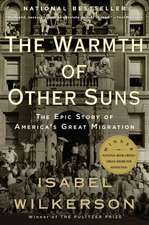Ethnic Economies
Autor Ivan Light, Steven J. Golden Limba Engleză Paperback – 11 ian 2000
Preț: 653.54 lei
Preț vechi: 734.32 lei
-11% Nou
Puncte Express: 980
Preț estimativ în valută:
125.07€ • 130.09$ • 103.25£
125.07€ • 130.09$ • 103.25£
Carte tipărită la comandă
Livrare economică 12-26 aprilie
Preluare comenzi: 021 569.72.76
Specificații
ISBN-13: 9780122871559
ISBN-10: 0122871553
Pagini: 302
Dimensiuni: 152 x 229 x 457 mm
Greutate: 0.48 kg
Ediția:New.
Editura: Emerald Publishing
ISBN-10: 0122871553
Pagini: 302
Dimensiuni: 152 x 229 x 457 mm
Greutate: 0.48 kg
Ediția:New.
Editura: Emerald Publishing
Public țintă
Undergraduate and graduate students working in the fields of sociology, anthropology, political science, economies, and public policy.Cuprins
Preface.
The Ethnic Economy Since Weber.
The Size of Ethnic Economies.
Wealth, Income, Employment.
Class Resources.
Ethnic Resources.
Gender and Families in Ethnic Economies.
Ethnic Economies and Ethnic Communities.
Forms of Disadvantage.
Credit Issues in the Ethnic Ownership Economy.
Bibliography.
The Ethnic Economy Since Weber.
The Size of Ethnic Economies.
Wealth, Income, Employment.
Class Resources.
Ethnic Resources.
Gender and Families in Ethnic Economies.
Ethnic Economies and Ethnic Communities.
Forms of Disadvantage.
Credit Issues in the Ethnic Ownership Economy.
Bibliography.
Recenzii
"The first thing that struck me about this book is its sheer breadth and ambition. It is easily the most comprehensive overview of what we know as ethnic economies... this is a must-have book... Ethnic Economies is clearly written and organized, so that it will be a valuable and acessible text for undergraduates; however, it will be just as important for scholars of immigration, ethnic business, and 'race relations' more generally."
—ETHNIC AND RACIAL STUDIES
"Sociologists Light and Gold provide a comprehensive overview of the scholarly literature examining the ethnic economy phenomenon, with an emphasis on how these ethnic economies function in contemporary American society. They discuss carefully what can be signified by the term "ethnic economy" and define the broader category of ethnic ownership economies (business owners along with their coethnic workers), the narrower category of ethnic enclave economies (ethnic ownership economies that cluster around a territorial core), and the idea of an ethnic-controlled economy (wherein coethnic employees exert appreciable and persistent economic power). They proceed to measure the size of these various economies and compare their relative size for different ethnic groups. Additional topics covered include the potential advantages and disadvantages for ethnic group members of these economic structures; the types of class and ethnic resources drawn upon by different groups (including an emphasis on the distinctions between class and ethnic resources); the interaction of gender and family structure with an ethnic economy structure; the relationship between ethnic communities and ethnic economies; and the role of the credit institutions (such as rotating credit associations) that are often found in ethnic economies. This valuable interdisciplinary work is recommended for public, academic, and professional library collections."
—CHOICE
"Surveys, interprets, and contributes to what is known about ethic economies in the United States and Canada and their consequences. Reviews the course of social science inquiry into ethnic economies since Max Weber to clarify why ethnic economies have been, and remain, controversial. Examines the size of ethnic economies. Considers wealth, income, and employment associated with ethnic economies. Discusses class resources-the vocationally relevant cultural and material endowment of bourgeoisies-and provides a critique of class theory. Examines ethnic resources and their role in shaping ethnic economies. Explores gender and family arrangements in ethnic economies. Addresses the broader relationship between ethnic economies and ethnic communities. Discusses forms of disadvantage and considers disadvantage as an explanation for ethnic entrepreneurship. Examines credit issues in the ethnic ownership economy."
—JOURNAL OF ECONOMIC LITERATURE
"With this important look at ethnic sub-economies, Light and Gold have made a meaningful contribution towards our understanding of the vital role played by ethnic groups."
—JOURNAL OF DEVELOPMENTAL ENTREPRENEURSHIP
"...their book is the most important attempt so far to provide a synthetic and coherent description of what is known on immigrant's business activities in the United States, in terms of both empirical findings and theoretical explanations. Ethnic Economies is elegantly written and manages to remain very clear despite the complexity of the ideas discussed and the abundance of empirical data. It thus constitutes a valuable introduction for non-specialists as well as a stimulating and useful tool for those who are familiar with the subject... The recent production of recapitulative works on what we know on ethnic economies is symptomatic, and Light and Gold's Ethnic Economies is the most notable and comprehensive review of the literature so far."
—DIASPORA
"Ethnic Economies turns out to be the long-awaited seminal reference for researchers, students, and policymakers in the area of ethnic entrepreneurial contributions and participation in mainstream economies... Finally, a significant contribution Light and Gold have made in this influential book is their coverage of ethnic enterprise as it impacts class, gender, familial arrangements, the immigrant experience and ethnic communities. Here, the book provides an authoritative voice on the lesser known aspects of entrepreneurial activities, shedding light on the socio-cultural dimension of ethnic enterprise."
—JOURNAL OF AMERICAN ETHNIC HISTORY
"...Light and Gold leave students of ethnic economies with an elegant and comprehensive review of the literature. The timely nature of their topic and the accessible arguments in Ethnic Economies will likely make this work a popular acquisition among academic and popular audiences."
—CONTEMPORARY SOCIOLOGY
Prepublication Reviews
"Ethnic Economies is a thorough and systematic incursion into a topic of increasing importance. The book puts paid to the persistent assumption that only salaried employment in the general labor market counts. It shows instead how 'small' can be 'big' when it comes to promoting the survival and economics advancement of minorities. Light and Gold have produced a complex, textured argument well worth studying by those interested in ethnic inequality, success and failure."
—ALEJANDRO PORTES, Princeton University, Princeton, New Jersey
"Light and Gold's Ethnic Economies provides a wealth of data to back up a commonsense observation ignored by most economists: that economic life in contemporary America continues to be organized along ethnic lines, and that ethnic groups' differing endowments of human, social, and cultural capital go a long way to explaining their economic success. An incredibly valuable resource for social scientists and for general readers alike who are interested in the impact of ethnicity on contemporary American life."
—FRANCIS FUKUYAMA, Hirst Professor of Public Policy, George Mason University, Arlington, Virginia
"Ethnicity is alive and well, in part because it turns out to serve tangible ends. Those who want to know how and why, need to read Light and Gold's Ethnic Economies. Beautifully written and trenchantly argued, this book distills a vast, inter-disciplinary, and international literature in a way that makes it accessible to the novice, and yet stimulating for the experienced scholar. A work to be valued, not just by sociologists, but by economists, anthropologists, and historians alike."
—ROGER WALDINGER, University of California, Los Angeles
"Ethnic Economies provides a very clear, comprehensive discussion of the complex field of ethnicity, entrepreneurship and economic context. While designed for classroom use, the book's overview and stand on controversial issues and its excellent documentation and U.S. data also make it an essential tool for scholars, especially those working outside the United States."
—JEREMY BOISSEVAIN, Emeritus Professor of Social Anthropology, University of Amsterdam
"Already in the early 1970s, Ivan Light pioneered research on so-called ethnic resources of (immigrant) entrepreneurs. Now, almost three decades later, he and Steven Gold comprehensively wrap up the by now enormous body of academic literature on ethnic economies in the United States—a truly impressive achievement. They offer a superb panorama that bears testimony to the leading position of American economic sociologists in the field of immigration and, at the same time, making a strong theoretically as well as empirically founded argument for economic-sociological research in general."
—JAN RATH, Institute for Migration and Ethnic Studies (IMES), University of Amsterdam
Reviews
—ETHNIC AND RACIAL STUDIES
"Sociologists Light and Gold provide a comprehensive overview of the scholarly literature examining the ethnic economy phenomenon, with an emphasis on how these ethnic economies function in contemporary American society. They discuss carefully what can be signified by the term "ethnic economy" and define the broader category of ethnic ownership economies (business owners along with their coethnic workers), the narrower category of ethnic enclave economies (ethnic ownership economies that cluster around a territorial core), and the idea of an ethnic-controlled economy (wherein coethnic employees exert appreciable and persistent economic power). They proceed to measure the size of these various economies and compare their relative size for different ethnic groups. Additional topics covered include the potential advantages and disadvantages for ethnic group members of these economic structures; the types of class and ethnic resources drawn upon by different groups (including an emphasis on the distinctions between class and ethnic resources); the interaction of gender and family structure with an ethnic economy structure; the relationship between ethnic communities and ethnic economies; and the role of the credit institutions (such as rotating credit associations) that are often found in ethnic economies. This valuable interdisciplinary work is recommended for public, academic, and professional library collections."
—CHOICE
"Surveys, interprets, and contributes to what is known about ethic economies in the United States and Canada and their consequences. Reviews the course of social science inquiry into ethnic economies since Max Weber to clarify why ethnic economies have been, and remain, controversial. Examines the size of ethnic economies. Considers wealth, income, and employment associated with ethnic economies. Discusses class resources-the vocationally relevant cultural and material endowment of bourgeoisies-and provides a critique of class theory. Examines ethnic resources and their role in shaping ethnic economies. Explores gender and family arrangements in ethnic economies. Addresses the broader relationship between ethnic economies and ethnic communities. Discusses forms of disadvantage and considers disadvantage as an explanation for ethnic entrepreneurship. Examines credit issues in the ethnic ownership economy."
—JOURNAL OF ECONOMIC LITERATURE
"With this important look at ethnic sub-economies, Light and Gold have made a meaningful contribution towards our understanding of the vital role played by ethnic groups."
—JOURNAL OF DEVELOPMENTAL ENTREPRENEURSHIP
"...their book is the most important attempt so far to provide a synthetic and coherent description of what is known on immigrant's business activities in the United States, in terms of both empirical findings and theoretical explanations. Ethnic Economies is elegantly written and manages to remain very clear despite the complexity of the ideas discussed and the abundance of empirical data. It thus constitutes a valuable introduction for non-specialists as well as a stimulating and useful tool for those who are familiar with the subject... The recent production of recapitulative works on what we know on ethnic economies is symptomatic, and Light and Gold's Ethnic Economies is the most notable and comprehensive review of the literature so far."
—DIASPORA
"Ethnic Economies turns out to be the long-awaited seminal reference for researchers, students, and policymakers in the area of ethnic entrepreneurial contributions and participation in mainstream economies... Finally, a significant contribution Light and Gold have made in this influential book is their coverage of ethnic enterprise as it impacts class, gender, familial arrangements, the immigrant experience and ethnic communities. Here, the book provides an authoritative voice on the lesser known aspects of entrepreneurial activities, shedding light on the socio-cultural dimension of ethnic enterprise."
—JOURNAL OF AMERICAN ETHNIC HISTORY
"...Light and Gold leave students of ethnic economies with an elegant and comprehensive review of the literature. The timely nature of their topic and the accessible arguments in Ethnic Economies will likely make this work a popular acquisition among academic and popular audiences."
—CONTEMPORARY SOCIOLOGY
Prepublication Reviews
"Ethnic Economies is a thorough and systematic incursion into a topic of increasing importance. The book puts paid to the persistent assumption that only salaried employment in the general labor market counts. It shows instead how 'small' can be 'big' when it comes to promoting the survival and economics advancement of minorities. Light and Gold have produced a complex, textured argument well worth studying by those interested in ethnic inequality, success and failure."
—ALEJANDRO PORTES, Princeton University, Princeton, New Jersey
"Light and Gold's Ethnic Economies provides a wealth of data to back up a commonsense observation ignored by most economists: that economic life in contemporary America continues to be organized along ethnic lines, and that ethnic groups' differing endowments of human, social, and cultural capital go a long way to explaining their economic success. An incredibly valuable resource for social scientists and for general readers alike who are interested in the impact of ethnicity on contemporary American life."
—FRANCIS FUKUYAMA, Hirst Professor of Public Policy, George Mason University, Arlington, Virginia
"Ethnicity is alive and well, in part because it turns out to serve tangible ends. Those who want to know how and why, need to read Light and Gold's Ethnic Economies. Beautifully written and trenchantly argued, this book distills a vast, inter-disciplinary, and international literature in a way that makes it accessible to the novice, and yet stimulating for the experienced scholar. A work to be valued, not just by sociologists, but by economists, anthropologists, and historians alike."
—ROGER WALDINGER, University of California, Los Angeles
"Ethnic Economies provides a very clear, comprehensive discussion of the complex field of ethnicity, entrepreneurship and economic context. While designed for classroom use, the book's overview and stand on controversial issues and its excellent documentation and U.S. data also make it an essential tool for scholars, especially those working outside the United States."
—JEREMY BOISSEVAIN, Emeritus Professor of Social Anthropology, University of Amsterdam
"Already in the early 1970s, Ivan Light pioneered research on so-called ethnic resources of (immigrant) entrepreneurs. Now, almost three decades later, he and Steven Gold comprehensively wrap up the by now enormous body of academic literature on ethnic economies in the United States—a truly impressive achievement. They offer a superb panorama that bears testimony to the leading position of American economic sociologists in the field of immigration and, at the same time, making a strong theoretically as well as empirically founded argument for economic-sociological research in general."
—JAN RATH, Institute for Migration and Ethnic Studies (IMES), University of Amsterdam
Reviews
Notă biografică
Ivan Light has written extensively about ethnic economies, including his books Ethnic Enterprise in America (1972), Immigrant Entrepreneurs: Koreans in Los Angeles, 1965-1982 (1988), Comparative Immigration and Entrepreneurship (1993), and Race, Ethnicity, and Entrepreneurship in Urban America (1995). Steven Gold is the author of Jews from the Former Soviet Union in the US (1995) and Refugee Communities: A Comparative Field Study (1992).














